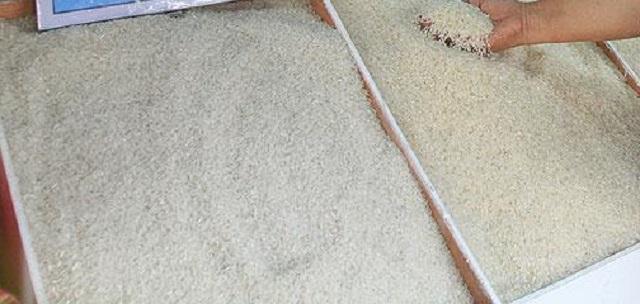5 senators file reso urging Malacañang to withdraw EO reducing rice tariff to 35%

Five senators on Wednesday filed a resolution urging Malacañang to withdraw Executive Order 135 which reduces the rice tariff from 40%-50% to 35% for one year.
Under Senate Resolution 726, Minority Leader Franklin Drilon, Senators Nancy Binay, Leila de Lima, Risa Hontiveros, and Francis Pangilinan said there is “no reasonable and sufficient basis to reduce the tariff rates on rice and it will only cause more burden to our local rice farmers, further increase our import dependency, and cost the government millions in foregone revenues.”
The lawmakers noted Malacañang’s justification in imposing EO 135, claiming that there has been a continuous increase in the price of rice from other countries, particularly those imported from the Association of Southeast Asian Nations (ASEAN) region, and there are uncertainties relative to the supply of rice because of the current global economic situation brought about by the COVID-19 pandemic.
The senators, however, cited Federation of Free Farmers (FFF) statement questioning the basis of the reduction of tariffs despite Agriculture Secretary William Dar’s assurance that there is an ample supply of rice in the Philippines following a record harvest in 2020.
The FFF likewise stated that the Philippines has been consistently importing from nine other countries, including the so-called most favored nations (MFN) of India and Pakistan, and China.
They also cited Philippine Statistics Authority’s (PSA) data which showed that the rice inflation rate was -0.3% in April 2021, 0.9% in March 2021, and 0.5% in February 2021.
The Philippine government may also lose at least P60 million in revenues per year if the MFN tariff rates on rice is reduced to 35%, according to the Tariff Commission.
However, the senators cited the FFF’s estimate, projecting around P548 million foregone revenues should the government pushes for the lowered tariffs.
The lawmakers likewise pointed out that lower tariffs mean lower revenue collection and lower Rice Competitiveness Enhancement Fund (RCEF).
This will decrease the appropriations for rice farmer financial assistance, titling of agricultural rice lands, expanded crop insurance program on rice, and/or crop diversification program under Republic Act 11203.
“These programs depend on the excess of the P10 billion tariff revenues collected from rice importation,” the lawmakers said in the resolution.
Senators also asserted the legislative department’s authority in fixing tariff rates and import quota.
“It is Congress which authorizes the President to impose tariff rates, import and export quotas, tonnage and wharfage dues, and other duties or imposts and that such authorization can be exercised only within the specified limits set in the law and is further subject to limitations and restrictions which Congress may impose,” the resolution read, citing Supreme Court ruling on Southern Cross Cement Corporation v. Cement Manufacturers Association of the Philippines in 2005.
Last Saturday, Malacañang announced that President Rodrigo Duterte approved the recommendation to reduce the MFN tariff rates on imported rice.—AOL, GMA News




